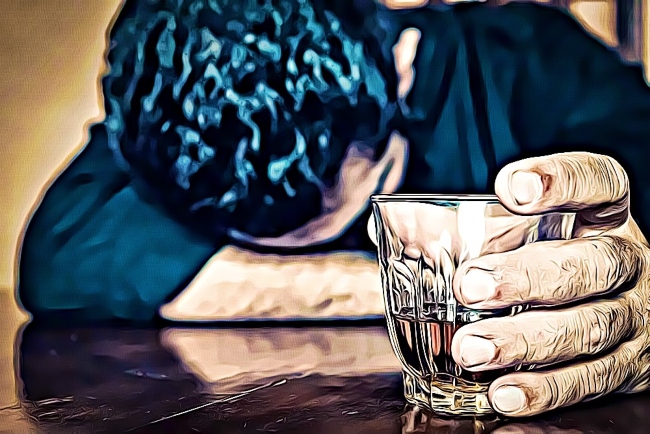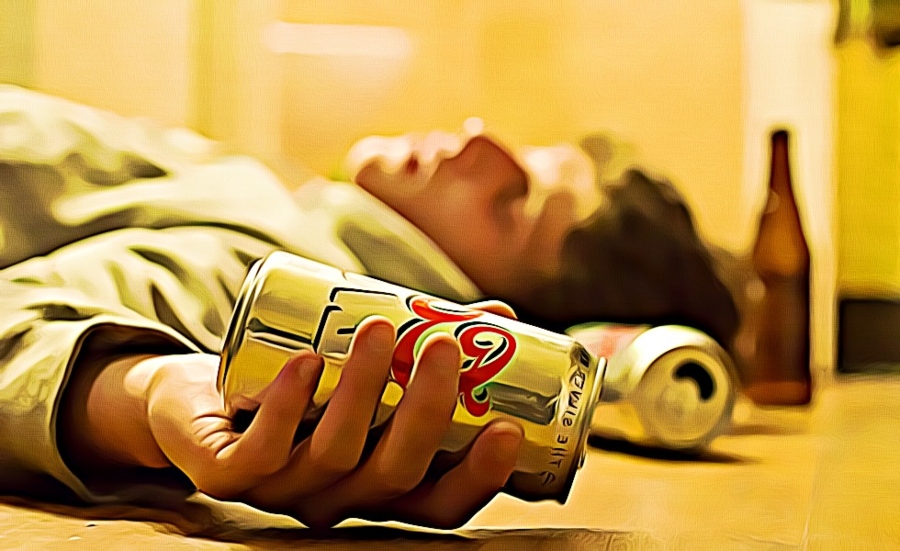A blackout can occur after a person puts a large amount of alcohol into his or her system. It can happen to anyone, of any age and at any level of experience with drinking alcohol, and is a consequence of drinking a lot in a short amount of time. A study reports that about half of people who have consumed alcohol have experienced blackouts at some point in their life.
Education on blackouts may help people avoid the negative consequences of drinking large amounts of alcohol, such as losing control over their behavior, potentially leading to dangerous activities, or making risky sexual decisions. Blackout education may also help people prevent alcohol poisoning and other dangerous situations they might face while intoxicated.
What is Blackout Drinking?
Blackouts are gaps in memory that are the result of excessive alcohol consumption. Alcohol affects the brain’s production of certain neurotransmitters, one of which is acetylcholine. When too much alcohol is consumed, it impacts the brain’s ability to produce the necessary levels of acetylcholine. This slows the brain’s ability to process information.
Blackouts are a type of amnesia or loss of memory. The body’s ability to create memories is compromised by alcohol. People who experience blackouts are unable to make memories while they are under the influence.
According to the National Institute on Alcohol Abuse and Alcoholism (NIAAA), blacking out is a potentially dangerous experience that can have serious consequences, including risky sexual behavior, traffic accidents, falls, drownings, burns, other injuries, and other forms of trauma.
Blackouts are not the same as passing out. A person who passes out has fallen into a deep sleep or has fainted. Although you may have lost consciousness, you did not have a total loss of memory.
Blackouts are the result of the body’s inability to process information while under the influence of alcohol. You can have a blackout without passing out.
Signs of Blackout Drinking
There are several signs that can help you determine if you are experiencing a blackout.
A person who is experiencing a blackout will not be able to remember what happened during that time period. If you talk about your day or what happened at work or school that day, the person experiencing the blackout will be unable to respond.
- If you find yourself awakened in an unfamiliar environment, you may be experiencing a blackout. Not knowing what you did the previous night is the telltale sign of a blackout.
- If you find yourself injured, disheveled, or disoriented, you may be experiencing a blackout.
- If you find yourself in a place that cannot be accounted for, such as your friend’s house or a bedroom that does not belong to you, you may be experiencing a blackout.
- If you do something that you never would do, such as drinking and driving, drinking and swimming, drinking and driving to the ice cream shop when you do not like ice cream, or drinking when you do not usually drink at all, you may be experiencing a blackout.
- If you’ve engaged in risky sexual behavior, such as unprotected intercourse, you may be experiencing a blackout.
- If your memory is in bits and pieces or is nonexistent, you may be experiencing a blackout.
- If you experience a blackout, it is likely that you will feel very confused and disoriented after waking up. This is a sign that the blackouts were the result of alcohol consumption.
Risk Factors for Blackouts
The risk of experiencing a blackout is increased due to a person’s alcohol tolerance level. If a person is a heavy drinker, they may have a higher tolerance for alcohol. This means that they can drink more alcohol without feeling its effects. They may be able to drink more before they pass out, and their memory may be compromised before they pass out.
The risk of experiencing a blackout is also greater the more times a person drinks. If you have been drinking alcohol on a regular basis, your tolerance may be increased and you may be more likely to experience blackouts.
If you drink alcohol and mix this with drugs, you may be at an increased risk for blackouts.
Blackouts can also result from mixing alcohol with prescription medications, such as those prescribed for anxiety, depression, and insomnia. If you mix alcohol with medication, you may experience memory loss as well as problems sleeping and/or breathing.

Symptoms of Blackouts
Blackouts occur after an individual consumes more than the maximum blood alcohol concentration (BAC) of .05%. For people who do not regularly drink alcohol, or who do not consume enough to raise their BAC above .05%, blackouts may occur with much lower blood alcohol concentrations.
The Short & Long Term Dangers of Blackout Drinking
During a blackout, it is common to make very bad decisions. You may participate in risky behavior or you may hurt yourself or hurt others. You would not remember having made these decisions or participating in these behaviors.
There are a number of short and long-term dangers associated with blackout drinking.
Short-Term Dangers
Some short-term dangers of blackout drinking include making poor decisions you would not normally make, engaging in risky behavior that could result in unintended pregnancy or sexually transmitted infections, being in a car accident or getting in a fight, and even being injured, burned, or drowning.
Long-Term Dangers
Some long-term dangers associated with excessive consumption of alcohol include developing a drinking problem, developing an alcohol use disorder, experiencing blackouts regularly, and experiencing a number of negative consequences.
When to Get Help
You should get help for alcohol abuse if you experience blackouts regularly. If you find yourself regularly experiencing blackouts, or if you find yourself regularly woken up in an unfamiliar environment, you should seek help for alcohol abuse.
Alcohol is a depressant and can have a serious impact on a person’s health and well-being. If you regularly experience blackouts or regularly find yourself waking up in an unfamiliar environment, you should avoid consuming alcohol altogether.
How to Stop
If you find yourself regularly experiencing blackouts, stop drinking alcohol altogether. If you find yourself regularly waking up in an unfamiliar environment, stop drinking alcohol. Take a hard look at your drinking habits and consider how much you are drinking and why you are drinking.

